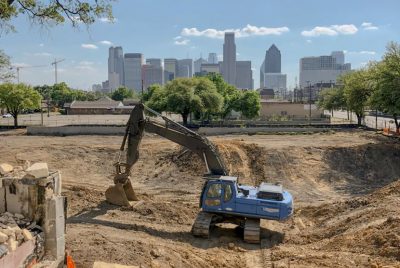
Ground-Up Construction Roundup: A Conversation with Key Bank SVP David Drummond and Rabbet CEO Will Mitchell

MBA Newslink interviewed Key Bank Real Estate Capital Senior Vice President David Drummond and Rabbet Chief Executive Officer Will Mitchell about trends and developments in the commercial and multifamily construction sector. The interview covers how the industry has evolved and met unprecedented challenges throughout 2020 with a particular focus on shifts from the second quarter to the third.
David Drummond is Senior Vice President and National Manager of Key Bank Real Estate Technical Services (KRETS), responsible for managing the procurement and technical review process of third-party due diligence services consisting of Appraisal, Engineering, Environmental and Zoning services related to Commercial Real Estate transactions.
Will Mitchell is the co-founder and CEO of Rabbet. After spending more than a decade in commercial real estate, he recognized the need for developers, lenders and equity partners to control, centralize and collaborate on their construction finances. At Rabbet, Will is helping all real estate stakeholders improve efficiency and visibility across billions of dollars in commercial real estate.
MBA NEWSLINK: Shortly after the onset of the pandemic, the country was experiencing a general slowdown in construction projects in various markets, has that slowdown continued?

KEYBANK REAL ESTATE CAPITAL SENIOR VICE PRESIDENT DAVID DRUMMOND: While production was roughly in a range of approximately 60 percent of normal levels back in May, we are generally now back to about 90 percent with some minor production issues with materials still being experienced.
NEWSLINK: Given the shutdowns, workers not showing up or walking off the job was also a concern back in April/May timeframe, how is that issue currently factoring into your risk assessments for active projects?
DRUMMOND: It seems we are past this issue now with people more willing to go back to work and a general acceptance of some level of risk to working.
NEWSLINK: In preparing for this interview, you mentioned keeping lines of communication open and changes to general conditions as ways you were addressing the “new normal.” What other ways have you had to adapt your internal processes to the current environment? Do you expect any changes to remain after the pandemic?
DRUMMOND: The way we are inspecting construction sites has definitely changed and I expect that will remain this way for now. Also, with most staff now deployed working from home, I expect that this will be the norm at least through early next year–adapting with technology has actually proven very effective.
NEWSLINK: Another challenge we have all been experiencing is shifting to virtual presence, i.e. using Zoom, site cameras, etc. Do you see that trend continuing?
DRUMMOND: The industry was forced to and was able to adapt to digital trends very quickly. I see that as the new process and not returning to our former methods anytime soon.
NEWSLINK: In terms of construction loans, are there any property types that have no new construction and has that dynamic changed much since the second quarter? What is your current outlook?
DRUMMOND: Hospitality, retail and entertainment are all categories that were off the table in May and it is pretty much the same right now for these property types. There will likely be losses in these categories in the industry as we move into the first half of 2021.
NEWSLINK: What do you anticipate next as things have started to open back up? Do you see lending starting to pick back up again?
DRUMMOND: Definitely, anecdotally, I can say that Key Bank is active in both the affordable space as well as some industrial right now- the metrics have strengthened for underwriting but there is still demand out there for solid projects.
NEWSLINK: It seems like coming to terms with impacts from COVID to processes and portfolios is biggest current challenge for construction lenders. What has been a positive change to come out of all of this for KeyBank or the industry overall?
DRUMMOND: The fact and realization that we can be a much more digital industry and that we can be resilient in our business practice. This has led to a much quicker path to more on-line services and automation of what we do- this epidemic is advancing technology at a much faster rate than before which has risk, but I see as a positive.

NEWSLINK: As you look at technology across the space, where do you see the biggest activity?
RABBET CEO WILL MITCHELL: Overall, for banking and truly the world, technology has been driven by a desire to connect, access or monitor information.
On the connection front, we have seen many financial institutions adopt technology like Zoom to connect with each other.
On the access front, whether it is accessing goods like Amazon or accessing information like nCino, the platforms that are providing access to information are seeing a lot of growth.
Lastly, monitoring information has skyrocketed as monthly updates are no longer sufficient. Folks want immediate access to information, and this is where various technology solutions, including Rabbet have helped lenders get real time status updates on their construction projects.
NEWSLINK: As you look at business practices, what has technology recently supported that was not being supported six months ago?
MITCHELL: Six months ago, almost any development project was successful. Rents were always going up and the ability to smooth mistakes was often easy, defaults were non-existent. This led to a situation where actors could get by with undervaluing the importance of tight controls around their construction projects. With the impacts of COVID across all property types, financial institutions are more aggressively adopting technology that enhances controls in place and quickly trigger actionable alerts when potential issues arise.
